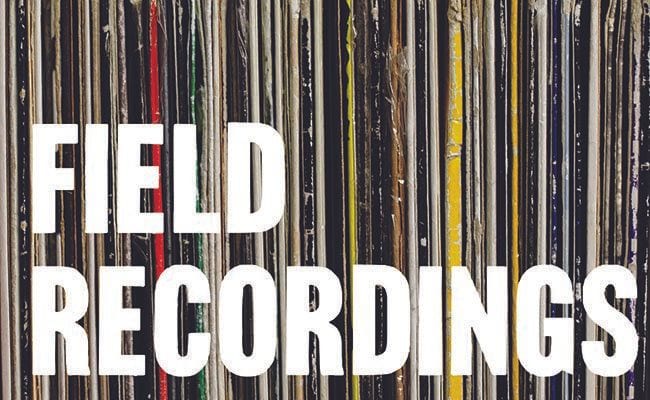
One of the things I quickly discovered while getting an MFA in Poetics is that the work of a poet incurs a certain kind of freedom from accountability. In particular, poets are not obligated to adhere to reality in their presentation of concrete details or to provide warrants for their opinionated claims. I felt I was being let off the hook far too often. In poetry, you can really just say anything and not only will no one challenge your premises, but in fact, people will often ascribe a hefty amount of deliberative intentionality to a poet where really there has only been some drunken scribbling. As a person who delights in historical research, synthesis of ideas, and a strong argumentative turn, eventually my instincts drove me toward prose, then non-fiction and eventually journalism.
For those of us that left the muddy waters of poetry for the delights of smooth sailing afforded by journalism, there will always be a bit of swampy detritus in our veins that we sometimes still have to pour out onto paper. Even after we have lost our line breaks, long past the cheap thrills of supersaturated alliteration or the staccato experimentation of slant rhymes and white space, our peculiar sense of diction and syntax often remains. When one begins to truly grasp how everything is copy, as Nora Ephron famously said, journalism reveals itself as a jealous, insatiable beast that sucks up all available influence, including the lingering sentiments of a writer’s early poetics. Graduate schools responded by inventing the label of hybridity. This is really just an admission that prose need not be factual and may, in fact, contain poetry.
Joe Bonomo’s Field Recordings from the Inside purports to be an essay collection. The author is a music journalist and the book is being marketed as a thing that moves between prose genres of criticism and memoir. Poets will know him best for Installation, a collection of prose poems selected for the National Poetry Series by Naomi Shihab Nye in 2007. He’s been awarded fellowships by the Illinois Arts Council for both prose and poetry, although Northern Illinois University bills him as a creative nonfiction professor and Wikipedia bills him as a rock ‘n’ roll writer. I like rock ‘n’ roll writer because it’s blessedly free of the shackles of genre. Much of Field Recordings will feel innovative to readers who impose their presumptions of writing genre or musical genre onto the moniker of rock ‘n’ roll writer.
For me, a person whose knowledge base is born of more consistent engagement with these types of gray areas in prose that the average reader is likely to possess, I did not feel that Bonomo’s book was innovative. But I did absolutely find it to be well done at both the levels of the informative and the evocative. In structuring these scraps into a book about his lifelong attachments to music, Bonomo holds on loosely and succeeds in never letting go. This is a book you can flip through, which is an obvious marker of his poetic turn of mind. In any given chapter, there are actually a multitude of entries. Some of them are a single sentence or short paragraph. Some of them are quotations. Some of them are several pages long.
Bonomo makes no effort to directly state transitional ideas between these fragments. The bits and pieces sometimes hang together quite smoothly on the subject of a single musician like Frank Sinatra, or a lyrical thread such as songs about Sunday mornings, or a period of time in his life like college. Often the pieces don’t fit together with precision, and the overall effect is more of a dreamy ebb and flow with only Bonomo’s sureness of voice to keep the connection glued. As far as rock ‘n’ roll writers go, I would characterize Bonomo as an impressionist painter. Field Recordings is loaded with flashes of feeling, stippled portraits of singular moments that will provoke an easy empathy not necessarily for their concrete details but for the resonance of their emotional landscape.
The author is at his best when he’s talking about music delivery systems — records, cassettes, juke boxes, radios, Shazam. He delves into the careful technicalities of repairing a favorite mix tape, the agony of the broken 45 and the scratch of a needle, the magic of requested songs, the terror of sudden volume and creeping static, the melancholy of instant gratification in a digital world. These are great leaps into the sensual, tangible, liminal properties of our experience with music. They are instantly relatable and will springboard readers into a renewed sensitivity toward their own parallel history of sound.
There’s a solid essay of Elvis Costello and Patsy Cline. I confess to not listening to much of either of their bodies of work over the years, yet I found myself turning the pages ever so slowly. Bonomo’s poetic craft remains strongly redolent even when one is not terribly interested in his specific factual content. On the other hand, there’s a quick paragraph on Nirvana that I reread several times after exclaiming aloud, “that exact same thing happened to me!”
He knows big bands and obscure bands, ancient ones and happening ones, so every reader is bound to find a bullseye on the journalism front somewhere in this book. The research and quotations are often compelling on their own, but the real gem of Field Recordings is its poetics. Bonomo slides between the skills and conventions of genre with an aptitude and ease that is mightily impressive, never fighting to tie it all together. This is a book that floats, landing on each reader uniquely but with similarly orchestrated intensity.


![Call for Papers: All Things Reconsidered [MUSIC] May-August 2024](https://www.popmatters.com/wp-content/uploads/2024/04/all-things-reconsidered-call-music-may-2024-720x380.jpg)



